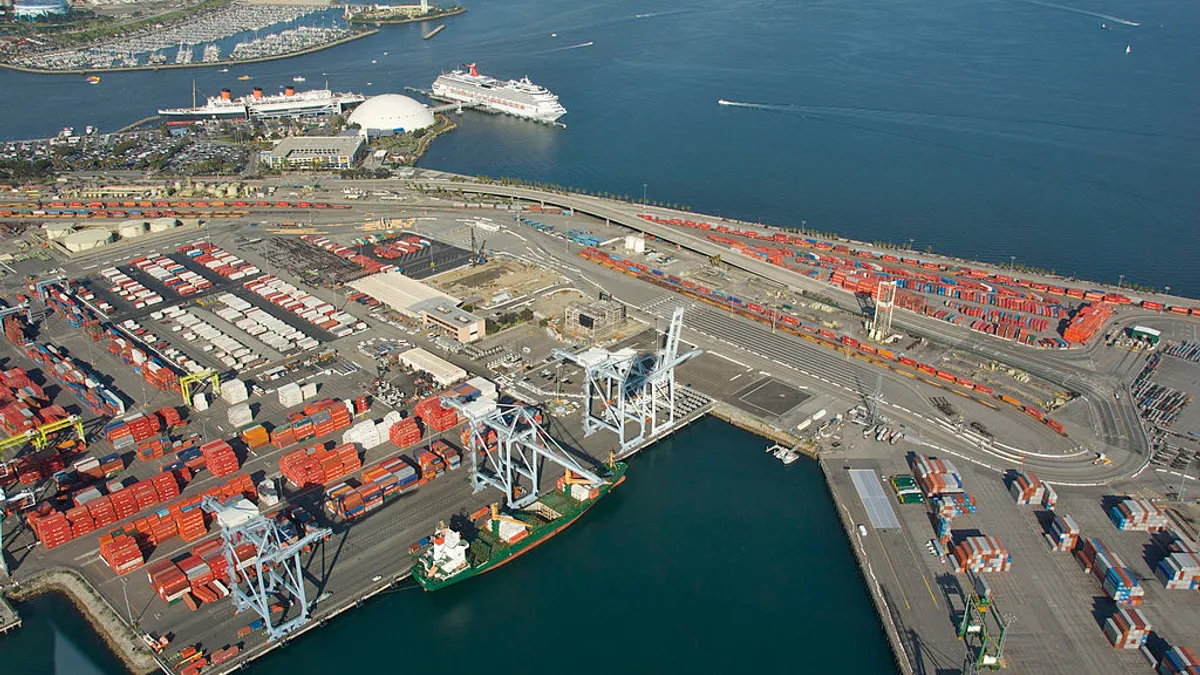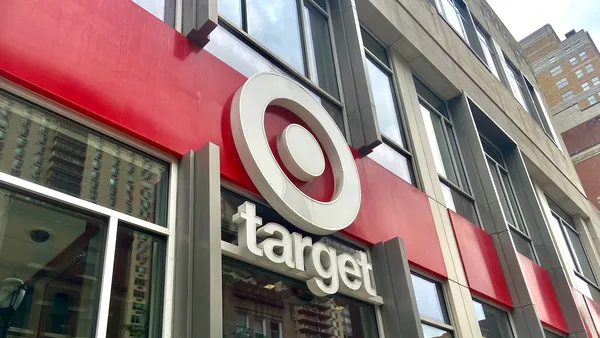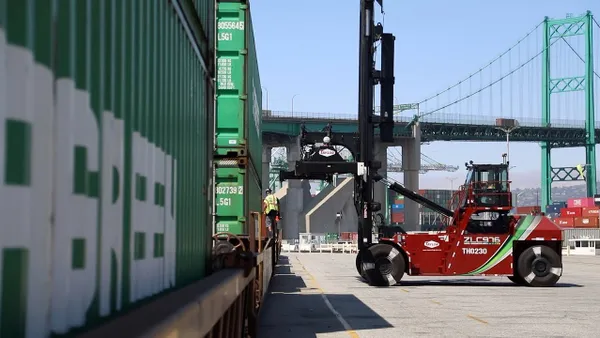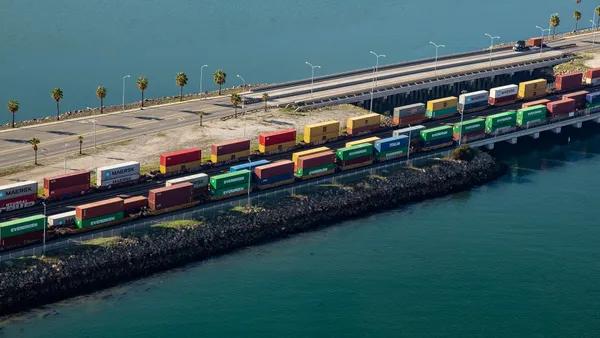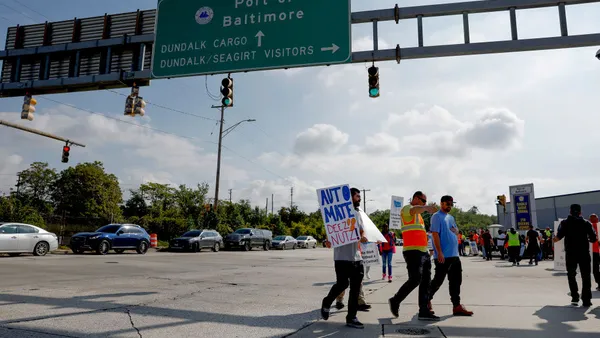UPDATE: This post was updated Monday, June 19, 2017 to reflect current conditions.
Dive Brief:
- Truck drivers, warehouse workers, a Los Angeles City Councilmember and local Teamsters initiated a strike Monday morning to protest XPO Logistics' Cartage and Port Services divisions at the Ports of Los Angeles and Long Beach, according to a Justice for Port Truck Drivers media advisory.
- The strike follows an announcement by the two cities' mayors setting a zero-emissions goal for the sister ports. The goal would require the ports to turn to zero-emission trucks and yard equipment, the Los Angeles Times reports.
- The strike protests this goal, claiming the burden of these zero-emission policies falls on the industry. In addition, Justice for Port Truck Drivers is also protesting "abusive" driver employment schemes relying on contract work or leased equipment.
Dive Insight:
Representatives for the Ports of Los Angeles and Long Beach told Supply Chain Dive last week that they aren't worried about how the strike will affect their operations.
Phillip Sanfield, Director of Media Relations for the Port of Los Angeles, said he isn't aware of the strike's details, but said the port always works with the protesters to make sure streets are safe. "They've done this probably 20 times over the past few years and have had minimal to no impact on our operations," Sanfield told Supply Chain Dive.
Lee Peterson, Media Relations Specialist for the Port of Long Beach, said Long Beach is aware the strike will be happening soon but plans to be fully operational throughout. "We will make sure the picketers exercise their right to protest," Peterson told Supply Chain Dive.
The two West Coast ports are the busiest in the nation, handling over a million containers a month, and depend greatly on internal logistics operators to ensure efficient transit from ship to terminal, and then to a logistics provider. Some of these port logistics operators are not directly employed by ports, however, but by trucking companies or contracting agencies — a model which has recently come under fire over its legality.
Over $40 million in back pay has been awarded to truck drivers since the implementation of the 2008 Clean Truck Program, Justice for Port Truck Driver alleges, as associated companies "lured" drivers into schemes and failed to pay them for extra time worked. The main issue, the organization claims, is that the zero-emission goal did not specify "who would pay for the new technology." Drivers who cannot afford new equipment would likely be displaced, or forced to lease equipment from associated companies.
In general, the announcement falls in line with a nationwide trend of port workers — from drivers, to tugboat operators, to dock workers — organizing disruptions to force employers into negotiations for better terms and employment security.
Earlier this year, workers associated with the International Longshoremen's Associations threatened to shut down East Coast and Gulf Coast ports, in protest of worker displacement over port automation. The strike was averted when the global union's president pledged to bring the issue to Congress, but the issue was not resolved. Even abroad, in Spain, Nordic countries, and in Panama, port workers are protesting unfavorable labor agreements.
However, shippers are demanding more efficient ports and the rise of Smart Ports in places like Canada and Germany show the benefits of automation. Organized labor, through high cost of employment and reluctance to innovate, supposedly slows this process.
Yet, the reality remains that organized labor has the ability to cripple port productivity and force negotiations. The most recent announcement may not cause a major disruption, but it shows the muscle and influence workers still have on the economy. For that same reason, and in fear of another major supply chain disruption, shippers reportedly distrust West Coast ports.


